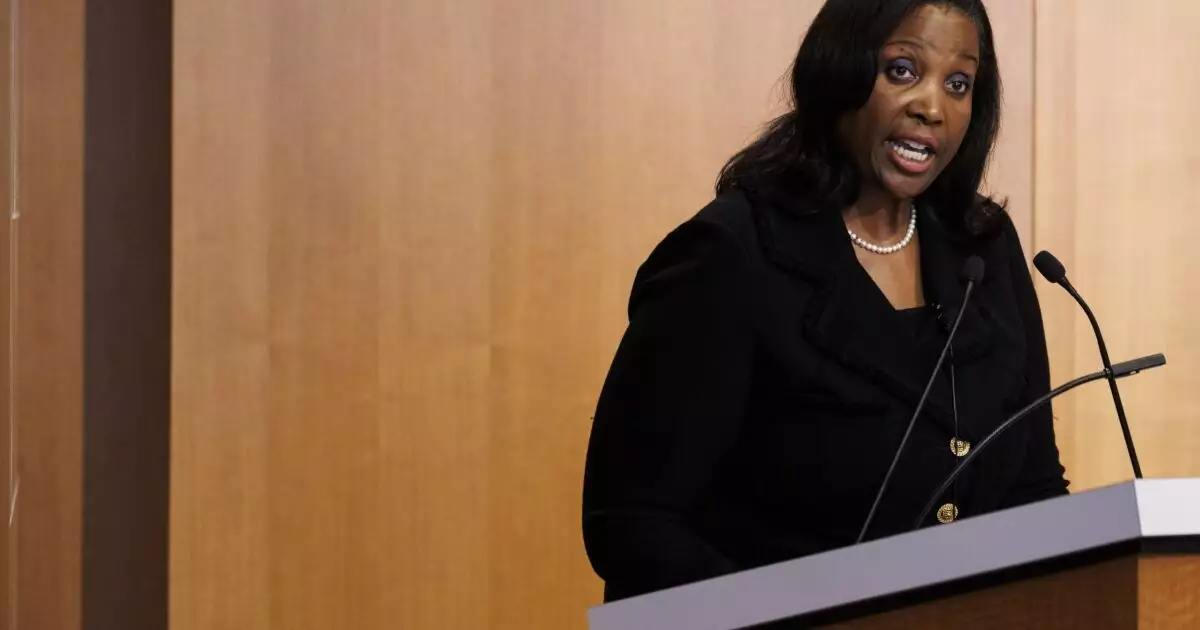In recent days, the tone coming from the highest levels of government has turned increasingly hostile toward key figures within the Federal Reserve. President Donald Trump’s unequivocal declaration that he would fire Fed Governor Lisa Cook if she refuses to resign over unproven allegations is not just a personal attack—it’s a stark warning about the fragile independence of our monetary authority. The unsettling part isn’t just the specific threat against Cook, but the broader implications for the foundation of American economic governance. Historically, Fed officials have operated with a degree of insulation from political pressure, ensuring that monetary policy remains focused on long-term stability rather than short-term political gains. Trump’s comments threaten to undermine this carefully maintained independence, asserting that members of the Fed are subject to removal based on political whims rather than merit or conduct.
The Power of Rhetoric and Its Effect on Institutional Integrity
Trump’s language—calling for Cook’s resignation and indicating willingness to fire her—sets a dangerous precedent. It suggests that loyalty to political figures might sometimes take precedence over competence or integrity. While the allegations cited against Cook are contentious and subject to legal processes, the manner in which the former president publicly pressures a Fed governor reveals a troubling desire to control economic policy through intimidation rather than constitutional and legal norms. When the political sphere begins to wield influence over an independent agency, the risk is that monetary policy becomes another tool in partisan battles instead of a shield for economic stability. Such rhetoric discourages qualified technocrats from serving in critical roles, fearing political retribution, thereby weakening the authority of the Fed as an autonomous institution.
The Historical Context and Escalating Political Interference
The use of political threats against Berther officials isn’t new, but recent actions suggest a deeper and more intentional assault on the independence of regulatory bodies. Trump’s prior actions—firing members of the National Labor Relations Board and other agencies—are part of a broader strategy rooted in the belief that the executive branch should have unchecked authority over agencies that traditionally operate independently of politics. The Supreme Court’s cautious stance, emphasizing the unique status of the Federal Reserve, nevertheless indicates the delicate balance that exists between independence and executive power. This push towards control comes at a time when the economic landscape demands stability and certainty, not political chaos and personal vendettas. The danger is that politicization erodes public trust in core institutions designed to safeguard economic stability.
The Broader Ideological Battle and Its Consequences
Underlying these developments is a philosophical debate about the nature of executive power. The Trump administration embraced a unitary executive theory, which claims the president should have command over all executive agencies, regardless of established norms or legal protections. This approach, if taken to its extreme, could lead to a dangerous concentration of power, eroding the system of checks and balances designed by the framers of our constitution. While the Supreme Court has previously protected Fed independence under its “quasi-private” status, the ongoing political pressure risks redefining what independence means in practice. If the president’s authority continues to be asserted over agencies like the Fed, the United States risks sacrificing decades of tried-and-true institutional independence in favor of a more centralized, politicized authority.
The Erosion of Financial and Political Stability
More than just a legal or institutional issue, this conflict strikes at the heart of economic stability. When political figures threaten or attempt to influence monetary policy and related agencies, they undermine the very tools needed to manage inflation, control interest rates, and foster economic growth. The insistence that the Fed bend to political will in pursuit of short-term gains—like lowering interest rates to benefit fiscal policies—disregards the long-term health of the economy. History shows that attempts to politicize the Fed often lead to unpredictable market reactions, inflationary spirals, or recessions. If these threats continue unchecked, Americans should brace themselves for a future where economic policy is less about data and more about political showmanship, inevitably harming the country’s financial wellbeing.
The Dangerous Path Toward Partisan Control
In essence, these recent threats symbolize a broader threat to American democracy—the encroachment of partisan politics into institutions meant to be neutral arbiters of economic stability. If the presidency can unilaterally dismiss or threaten to dismiss Fed officials based on political disagreements or personal accusations, the fundamental checks and balances guarding against executive overreach are in peril. The Federal Reserve’s independence isn’t just a bureaucratic convenience; it’s a safeguard for a stable and predictable economy. Disregarding that principle risks transforming crucial economic governance into another lever for partisan power struggles. The longer these trends are allowed to fester, the more vulnerable the integrity of America’s financial system becomes, and the more perilous the future of independent economic policy will appear.


Leave a Reply